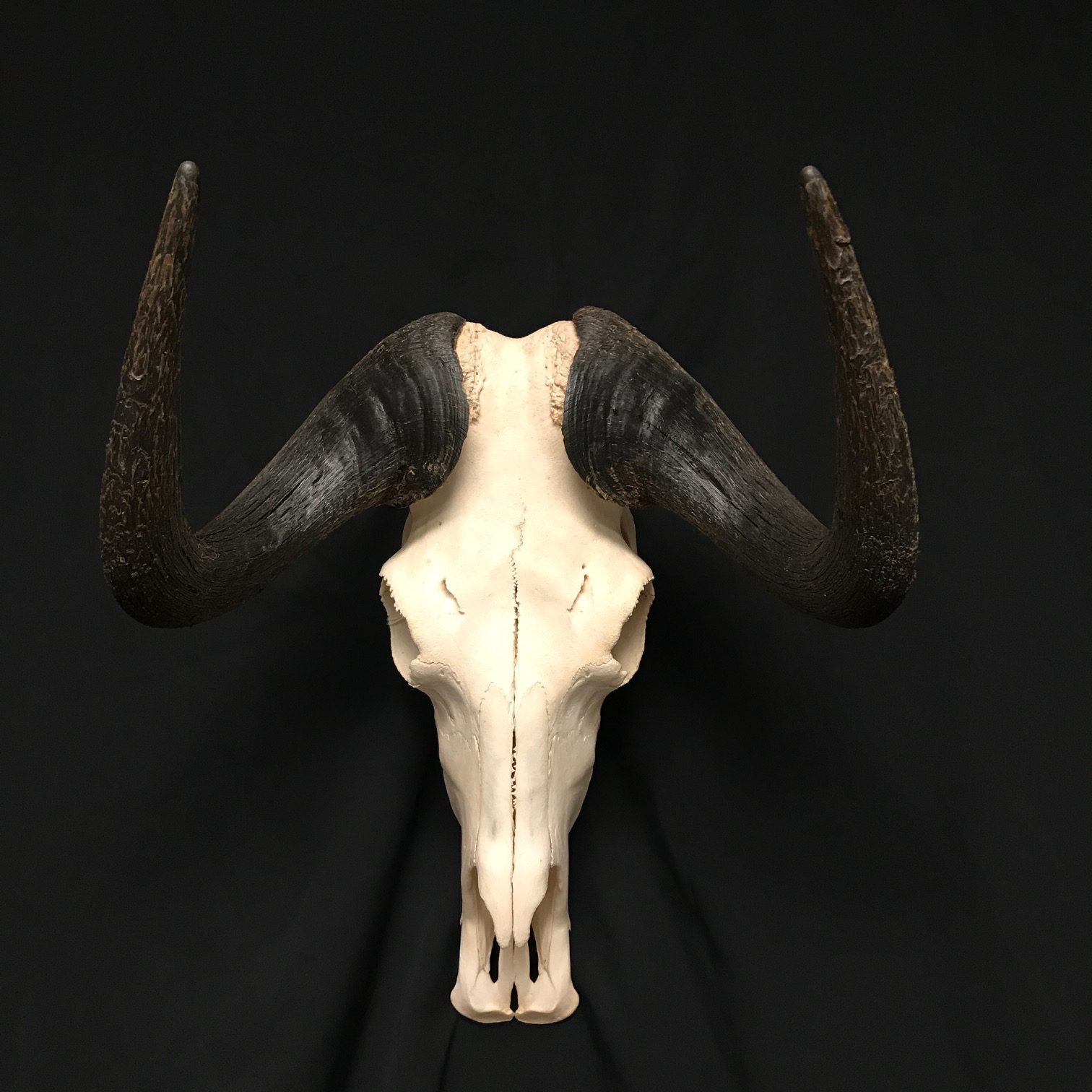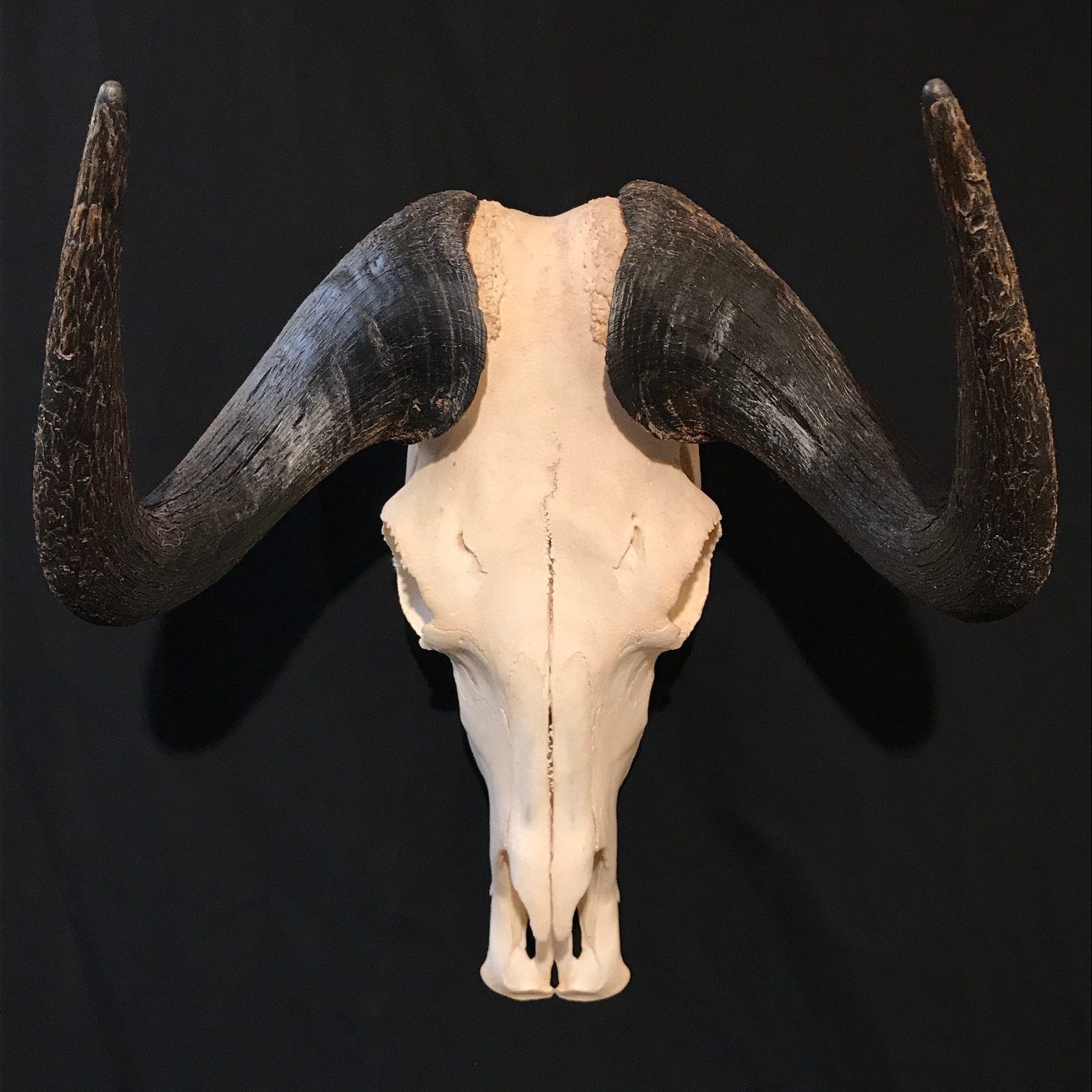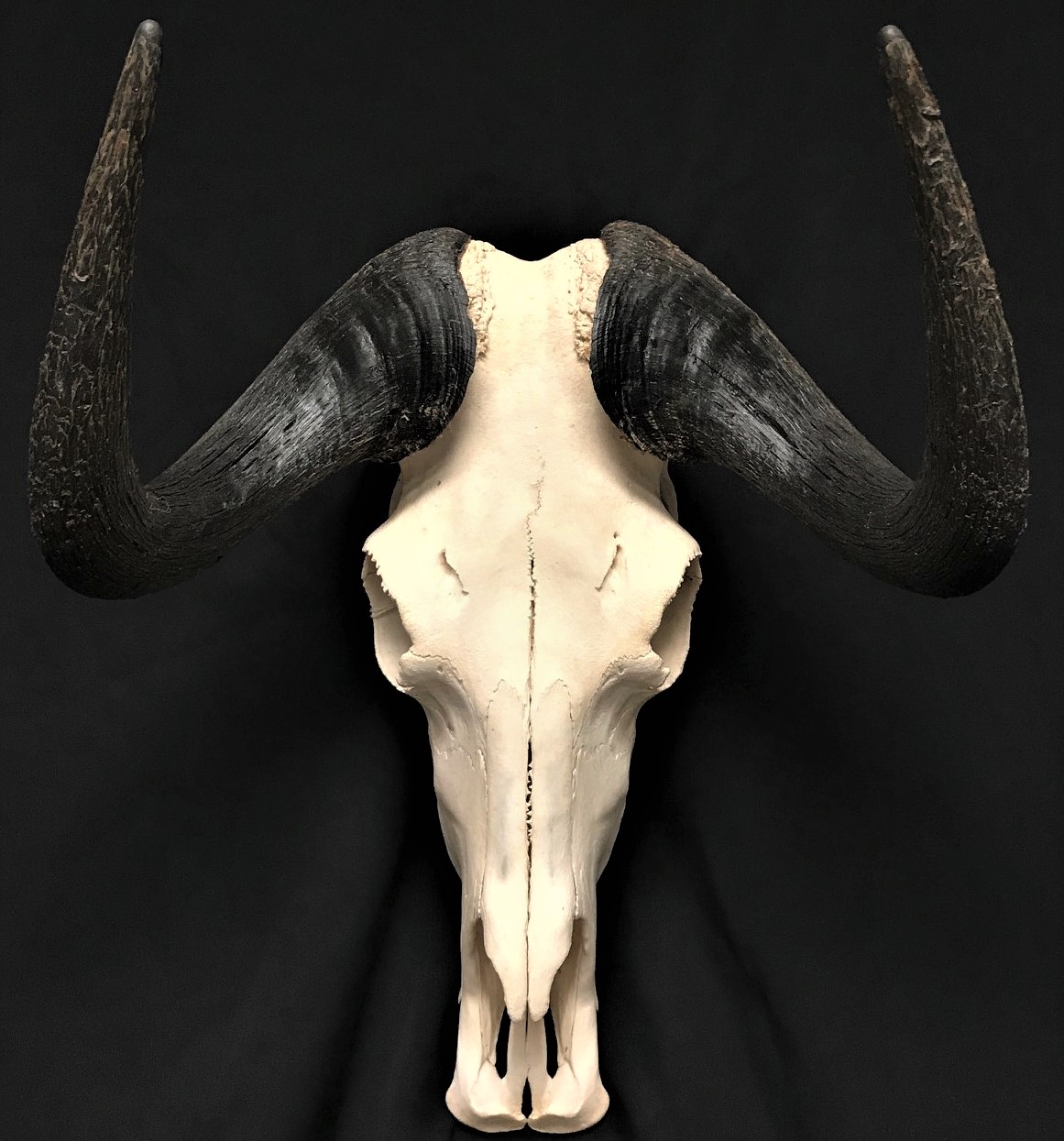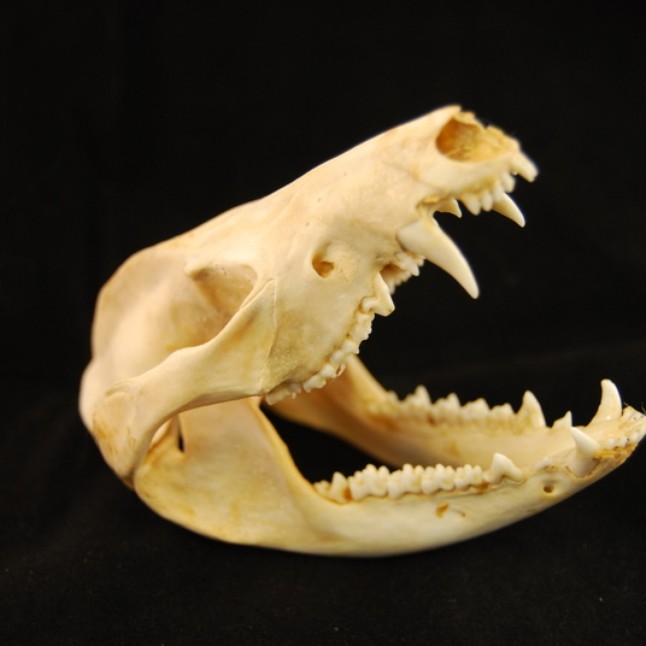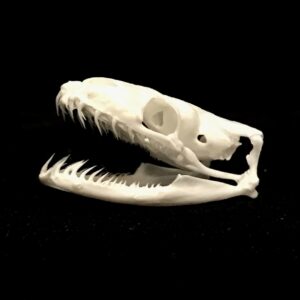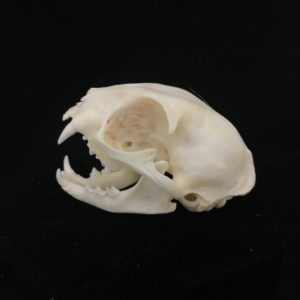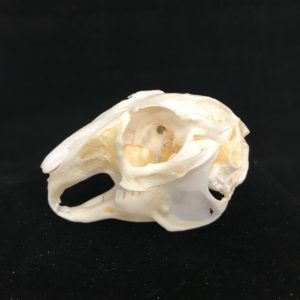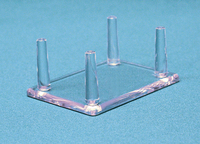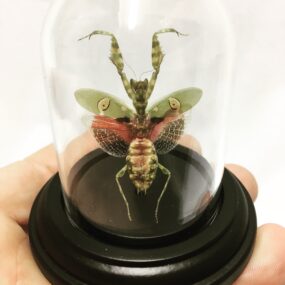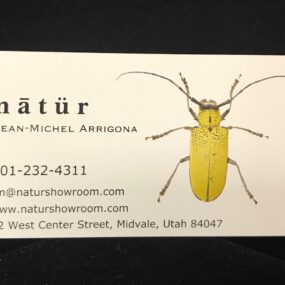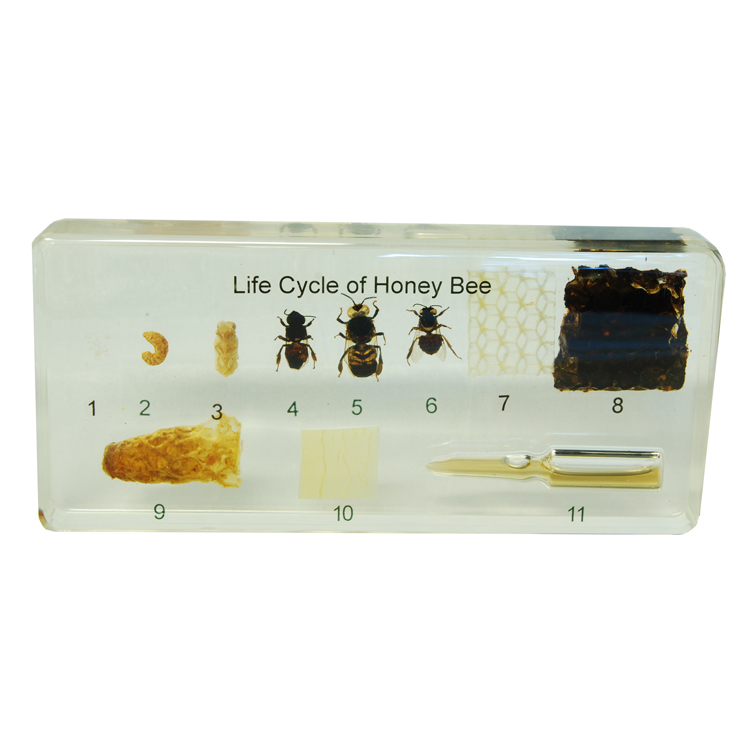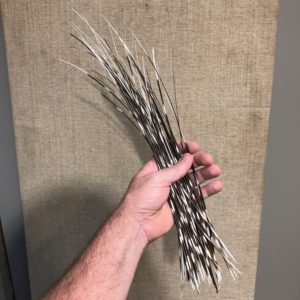Description
Both species of wildebeest (the blue and the black) are even-toed, horned, greyish-brown ungulates resembling cattle. Males are larger than females and both have heavy forequarters compared to their hindquarters. They have broad muzzles and shaggy manes and tails. The most striking morphological differences between the black and the blue wildebeest are the orientation and curvature of their horns and the colour of their coats. The blue wildebeest is the bigger of the two species.
The horns of the blue wildebeest protrude to the side, then curve downwards before curving up back towards the skull, while the horns of the black wildebeest curve forward then downward before curving upwards at the tips. Blue wildebeests tend to be a dark grey with stripes, but may have a bluish sheen. The black wildebeest has brown hair, with a mane that ranges in color from cream to black, and a cream-colored tail. The blue wildebeest lives in a wide variety of habitats, including woodlands and grasslands, while the black wildebeest tends to reside exclusively in open grassland areas. In some areas, the blue wildebeest migrates over long distances in the winter, whereas the black wildebeest does not.
The Wildebeest can live more than 40 years, though their average lifespan is around 20 years.
Approximate dimensions are:
Skull length: 15 inches
Horn width at its widest point: 13 inches


